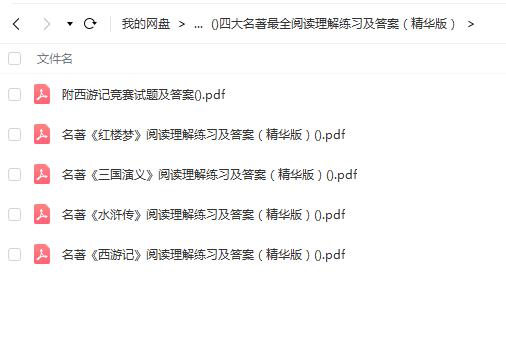以原创和原译的独特内容彰显高度的专业精神和能力,推动中国英语写作及其教学和英汉汉英翻译及其教学的发展,为全球各地的中国英语学习者和使用者提供一个高端服务的平台。
各项服务收费标准:
11.CATTI培训资料,每件60元,每套2500元QQ号码:462664730(添加时请注明“改稿和翻译业务”)帐号:foreverpeaceyellow (添加时请注明“改稿和翻译业务”)本微主保留在本公众订阅号里推送的所有文章的各种形式的版权,未经本人事先同意,任何机构和个人均不得擅自以任何形式对本号内的文章和译文包括修改文本进行商业利用,但欢迎转发。
书籍和资料订购:
下列书籍和资料除了第1种和第5种之外,其余3种的各篇文章均在本gongzhong号里有,读者为了省钱和不嫌手机和平板阅读不方便的话可以不用购买。
1. 法律英语文体学(英文版)
2. 新编英语阅读与写作实践教程(第5版)
3. 新编英汉汉英翻译实践教程
4. 海南中学2018年一高考备考生英语课模拟作文练习与评析
5.英汉双语字表(Excel电子文档)
注:详情见头条。
《新汉英翻译教程》教师用书第五章“综合练习”第4大题页面:

美丽如画的西双版纳位于平坦的澜沧江河谷地带,四周是亚热带的青山密林。澜沧江向南不远流出国境,便是著名的湄公河。西双版纳现为傣族自治州,其首府叫景洪。面积为两万五千平方公里,其中近百分之五十为森林覆盖的山区。在傣语中,西双版纳意即“十二个行政单位”;景洪即“黎明之城”——它的来历,有一个古老的民间传说。传说在很久很久以前,有一个魔王看上了景洪“平坝”土地肥沃,予以夺占,并且把七个美丽的傣族少女霸占为妻。人们恨此魔王,七个少女也想法要除掉他。一天,“第七号妻”想出了一个主意。她对魔王把盏劝酒,百般恭维。“你真是一个了不起的魔王,”她软语轻声地说,“你一定是刀枪不入吧。”“唔,差不离,”魔王自吹自擂地说,“只有从我头上拔根头发,绕住我的脖子,才能置我于死地。”一会儿魔王大醉,鼾声大作。这个少女便拔了一根头发,绕着魔王的脖子,紧紧一勒。魔王的脑袋滚落在地。这个魔王原来是个“火魔”,脑袋滚到哪里,哪里便烈焰腾腾。那“七个妻子”和所有的人都来泼水,把大火给弄灭了。然后,把那个脑袋扔进了澜沧江,景洪于是开始了黎明,“黎明之城”因此而得名。千百年来,傣族人民每年都过“泼水节”,庆祝灭魔除害。这就是“泼水节”的由来,“泼水节”也就是傣族的新年。教材编著者参考译文:
The picturesque Xishuang Banna, surrounded by green mountains covered with sub-tropical trees and vegetation is situated in a large flat valley bordering on the Lancang River. The river becomes the famous Mekong after crossing the Chinese border not far to the south.Xishuang Banna, now a Tai Autonomous Prefecture, has Jinghong as its capital. The prefecture covers an area of 25 000 square kilometers, nearly fifty percent of which is mountain forests. In the Tai language, Xishuang Banna means “Twelve Districts”, Jinghongmeans “Town of the Dawn” – and thereby hangs an age-old legend.According to the Tailegend, a long time ago a demon king, impressed by the fertility of the Jinghong“badz”, appropriated it and forcibly took seven beautiful Tai maidens to be his wives. The people hated the demon, and the maidens tried to think of how to get rid of him.One day, “Wife Number Seven” hit on an idea. She piled him with alcoholic drink and showered him with flattery. “What a remarkable demon king you are,” she spoke softly, “You must be absolutely invulnerable.”“Well, I am, more or less,” he boasted, “The only thing that can kill me is a piece of hair from my own head, twisted around my neck.”Soon he was snoring in drunken slumber. The maiden pulled out a hair from his head, wrapped it around his neck, and yanked. The demon’s head dropped rolling to the floor. As he was a “fire demon”, whatever the rolling head touched bust into flame. The seven “wives” and all the people quickly sloshed water and managed to distinguish the blaze. They threw the head into the Lancang River and a new day dawned in Jinghong. Hence the name –“Town of the Dawn”. Every year in the centuries that followed, the Tai people have been celebrating with a “Water Splashing Festival”, the destruction of the “fire demon”, a bane of the people.Such is the origin of the “Water Splashing Festival” which marks the Tai New Year.注意:除了惯有的各种重大错误之外,此译文有美式英语和英式英语混用的地方,包括标点符号的使用。大家能看出来吗?本人译文:
Xishuang Banna, a picturesque and tranquil place in Yunnan province in southwestern China, lies on a vast, flat Lancang River valley, hemmed in by ranges of hills and mountains covered with sub-tropical forests. Here the Lancang River continues to flow south and crosses the Chinese borders with Myanmar and Laos where it starts to be called the famous Mekong River.What is called Xishuang Banna is now none other than the Dai Autonomous Prefecture, whose capital city is Jinghong. The prefecture covers an area of 25,000 square km, nearly half of which are mountainous portions covered with dense forests. In the Dai language, Xishuang Banna means “Twelve Districts,” and Jinghong the “Town of Dawn.” This designation can trace its source to an old folk legend.Local folklore has it that a long time ago, a demon king settled on the vast, flat tracts of land around Jinghong for their great fertility and laid hold of them, and he also took seven beautiful Dai girls as his wives. The local folk hated the demon king very much, and the seven young girls also tried desperately to find ways to get rid of him.One day, “Wife No. 7” hit on an idea. She falsely went on a binge with the demon king and induced him to drink a lot while she showered him with much flattery. “What a great demon king you are!” she said softly. “You must be absolutely invulnerable!”“Well, I am. Almost,” the demon king boasted. “The only way to kill me is to pluck a hair from my head and put it around my neck.”Soon the demon king went into a drunken stupor, snoring noisily. The girl deftly plucked out a hair from the demon’s head, twisted it around his neck, and pulled it hard. The demon’s head dropped to the ground, rolling around. The monster turned out to be a “fire demon”—wherever his head rolled a fire flared up instantly. The seven “wives” and the local folk hurried over to splash water on the flames, putting them out in the end. Then they threw the demon’s head into the Lancang River, and dawn came up shortly over Jinghong, hence getting the popular designation “Town of Dawn.” In hundreds of years that follow, Dai people habitually spend the Water-Splashing Festival every year in celebration of killing the demon king, a bane of the local populace. Such is the origin of the Water-Splashing Festival which also marks the coming of the Dai New Year.延伸阅读:
《新汉英翻译教程》练习之译文修改系列(1):开篇话语
新汉英翻译教程》练习参考译文修改系列(19):第四章 综合练习第三大题参考译文的修改
新汉英翻译教程》练习参考译文修改系列(18):第四章 综合练习第一大题和第二大题参考译文的修改
《新汉英翻译教程》练习参考译文修改系列(17):第三章 思考与练习2 语段翻译 自译译文和该练习参考译文修改稿
《新汉英翻译教程》练习参考译文修改系列(16):第四章 课前翻译练习参考译文的修改
《新汉英翻译教程》练习只参考译文修改系列(15):第三章 综合练习第一大题和第二大题参考译文的修改
《新汉英翻译教程》练习之参考译文修改系列(6):第一章 综合练习第3大题参考译文的修改







































相关资源